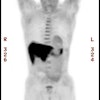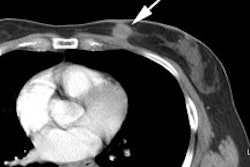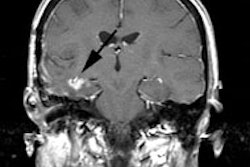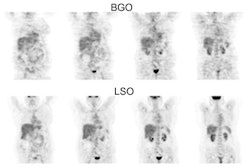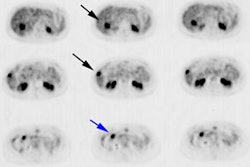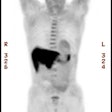Kalff V, Hicks RJ, Ware RE, Hogg A, Binns D, McKenzie AF.
This prospective study aimed to confirm, in a clinical setting, the benefits suggested by earlier retrospective studies of (18)F-FDG PET scanning for the evaluation of patients with suspected recurrence of colorectal cancer. METHODS: The referring oncologist was asked to prospectively assign a treatment plan for 102 consecutive patients being evaluated by (18)F-FDG PET for suspected or confirmed recurrence of colorectal cancer and without evidence of unresectable disease on conventional staging investigations, including CT. This treatment plan was then compared with that based on incremental information supplied by PET. Management changes were validated by follow-up. RESULTS: For 6 patients, the oncologist would not commit to a management plan without access to PET information, and for all these patients, PET correctly guided management. Of the remaining 96 patients, the management plan for 54 (56%) was altered as a direct result of unexpected PET findings. Thus, PET directly influenced management in 60 (59%) of 102 patients. The discrepant PET results could be validated in 57 patients and were correct for both the presence and the extent of malignant disease in 52 (91%) of these patients but were false-positive in 1 patient because of a pelvic abscess and underestimated the extent of metastatic disease in 4 (7%). Relapse was confirmed in 49 (98%) of 50 evaluable patients with positive PET findings. Significantly, planned surgery was abandoned in 26 (60%) of 43 patients because of incremental PET findings. Of the 42 patients for whom management was not changed by PET findings, false-negative PET findings were documented for 5 (4 with metastases < 1 cm), and the PET findings for 1 were presumed to be false-positive because of sarcoidosis. CONCLUSION: This prospective study confirms the high impact, suggested by previous retrospective analyses, of (18)F-FDG PET on management of patients with suspected recurrent colorectal cancer. The major benefit of PET is avoidance of inappropriate local therapies by documentation of widespread disease.
